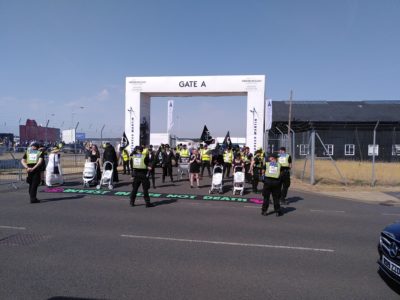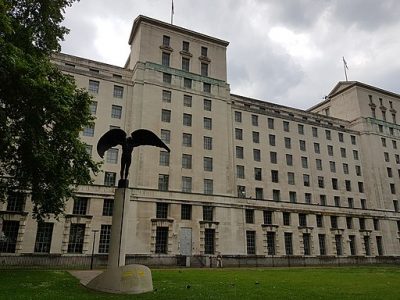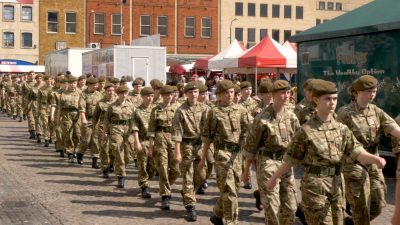Charities pairing ex-military staff with disadvantaged pupils get £1.9m
The Guardian
Extra education cash for charities is part of Michael Gove’s ambition to boost military ethos in schoolchildren.
Michael Gove’s desire for a greater military ethos in schools has taken another step forward with the announcement of extra cash for charities which are using ex-service personnel to work with excluded or disadvantaged pupils.
The Department for Education (DfE) said it had committed £1.9m to four projects around England which put former military trainers into alternative provision teaching units, used primarily for pupils who had been excluded from ordinary schools but also those, for example, with particular medical needs.
The former service personnel would provide mentoring and confidence-building, and organise team-building tasks and, in some instances, outdoor obstacle courses to “engage and motivate hard-to-reach pupils”.
Since becoming education secretary, Gove has expanded the provision for school cadet forces and developed a Troops to Teachers programme, with £9,000 bursaries for ex-military staff seeking a career in the classroom.
Of the latest project, he said: “Every child can benefit from the values of a military ethos. Self-discipline and teamwork are at the heart of what makes our armed forces the best in the world – and are exactly what all young people need to succeed.”
Two of the groups involved are private youth training companies with a specialism in military-style courses. Cheshire-based Commando Joes’, which will get £600,000, was set up by a former army physical training instructor who publicised his idea on the BBC programme Dragons’ Den, and sells own-brand hooded tops and water bottles.
Challenger Troop, in Kent, which will receive £700,000, already specialises in working with children with behavioural problems. The other two organisations, Knowsley Skills Academy from Merseyside, and Nottinghamshire-based Skillforce, are charities, the latter having Prince William as its patron.
The DfE says such measures are particularly needed for pupils in alternative provision, where only 1.5% reach the age-16 yardstick of five or more GCSEs at grade C or above, around one fortieth of the proportion nationally. This had to change, Gove said.
“Exclusion from school should never mean exclusion from education. These projects are helping pupils in alternative provision reach their full potential and are helping to close the attainment gap.”
Gove’s focus on the subject has brought some scepticism from teaching unions, which argue that a military background offers no magic solution to discipline in the classroom.
Chris Keates, general secretary of the NASUWT union, said teachers welcomed additional support and that many ex-service personnel could become good teachers.
“Unfortunately the secretary of state is using these projects to imply once again that somehow teachers are failing. There is a distinction between the skills and expertise required to maintain discipline among adults in the armed services, with that required to ensure there is positive behaviour in schools. To say you can simply transfer the skills from one to the other is an oversimplification of the complexities of dealing with pupil behaviour in schools.”
A spokeswoman for the National Association of Headteachers said: “Some of these are great projects and some young people will respond well to the structured approach that they offer. However, disengagement and poor behaviour stem from a variety of causes and require a variety of responses.
The military approach isn’t for everyone, and team-building and self discipline can be gained equally well from the performing arts, sport and other activities.”
See more: military in schools/colleges,










